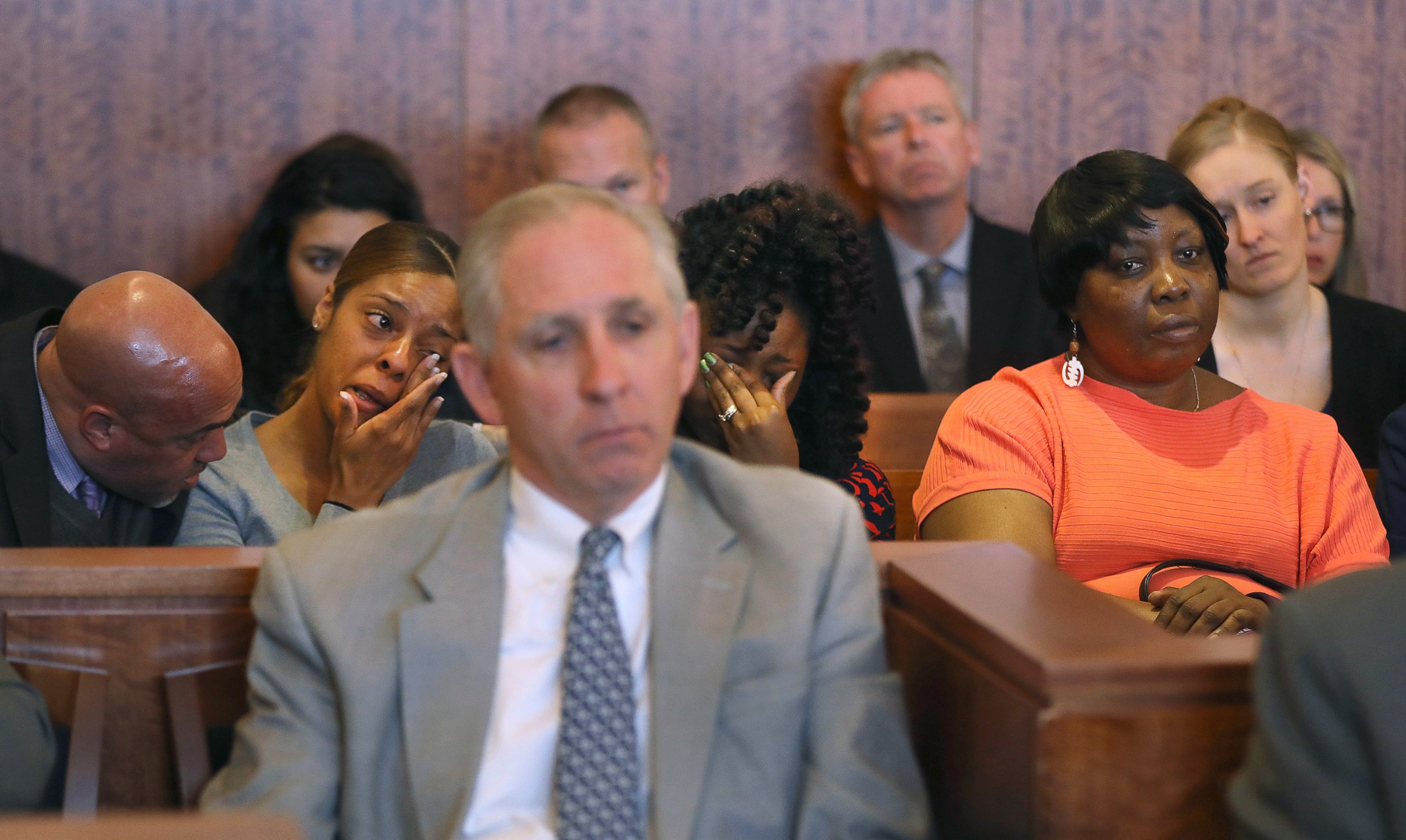Judge grants request to erase Aaron Hernandez's murder conviction
Ruling was made less than a month after Hernandez was found dead in prison.
— -- A Massachusetts judge today granted a request to erase Aaron Hernandez's murder conviction, less than one month after the former New England Patriots star hanged himself in prison.
“Abatement has been practiced in state and federal courts for more than a century,” Judge Susan Garsh said in delivering her ruling from the bench in Fall River. She noted that “an appeal is an integral part of the system” and said the interests of justice do not permit a defendant to stand convicted upon death if appeals are not exhausted.
“Abatement remains the law in this Commonwealth and this court is compelled to follow binding precedent,” Garsh said.
The judge said she could not abide by the assertion of prosecutors that Hernandez knew his about abatement when he decided to commit suicide. “This court cannot know why Hernandez chose to end his life,” Garsh said, adding that suicide is a “complex act that may have myriad causes.”
John Thompson, Hernandez’s appellate attorney, had argued to the judge, “When the defendant dies after a trial and before an appeal the abatement ab initio doctrine applies without exception. ... This is an established common law doctrine.”
But prosecutors in Bristol County, where Hernandez was found guilty in the 2013 killing of Odin Lloyd, argued there is no constitutional right to abatement -- prosecutor Pat Bomberg said it instead “is a practice.” Bomberg also told the judge there is no reason to erase the conviction since doing so would “reward” Hernandez for taking his own life.
At a press conference after the judge's ruling Lloyd's mother, Ursula Ward, said that Hernandez is guilty and will always be guilty.
"But I know ... one day I'm going to see my son. And that's the victory that I have that I am gonna take with me," she said.

Ward said she is holding on to her faith.
"Being angry is not a part of me. God didn't raise me like that," she said.
"No one won today. But I won. Because I have God on my side. And with God all things are possible,” she said. "I am not giving up. When he says the battle is over that’s when it’s over. I’m holding on until he tells me to give up."
Prosecutors said they plan to file an appeal.
Bristol County District Attorney Thomas Quinn said after court, "Hernandez deliberately, consciously and voluntarily chose to end his life. He died a guilty man and a convicted murderer. This fact is indisputable. He should not be able to accomplish in death, what he could not have accomplished in life.
"Despite the tragic ending to Aaron Hernandez's life, he should not reap the legal benefits of an antiquated rule," Quinn said.
"To allow the defendant to exploit this outdated rule in Massachusetts undermines confidence in the fair administration of justice, and the victim’s and the community's right to the integrity and respect of a jury's verdict," Quinn said.
On April 19, Hernandez was found naked hanging from a bed sheet in his cell at the Souza-Baranowski Correctional Center in Shirley, Massachusetts, the Worcester County District Attorney’s Office said. His death was ruled a suicide. Hernandez left behind three notes, and in one note, Bomberg said, Hernandez indicated he knew about abatement.
Hernandez was serving a life sentence after he was convicted in April 2015 of murder, unlawful possession of a firearm and unlawful possession of ammunition for the June 2013 killing of Lloyd in North Attleboro, Massachusetts. Lloyd was dating the sister of Shayanna Jenkins Hernandez, who was Hernandez's fiancée.
Five days before his death, Hernandez was acquitted in a double murder that occurred in 2012.




